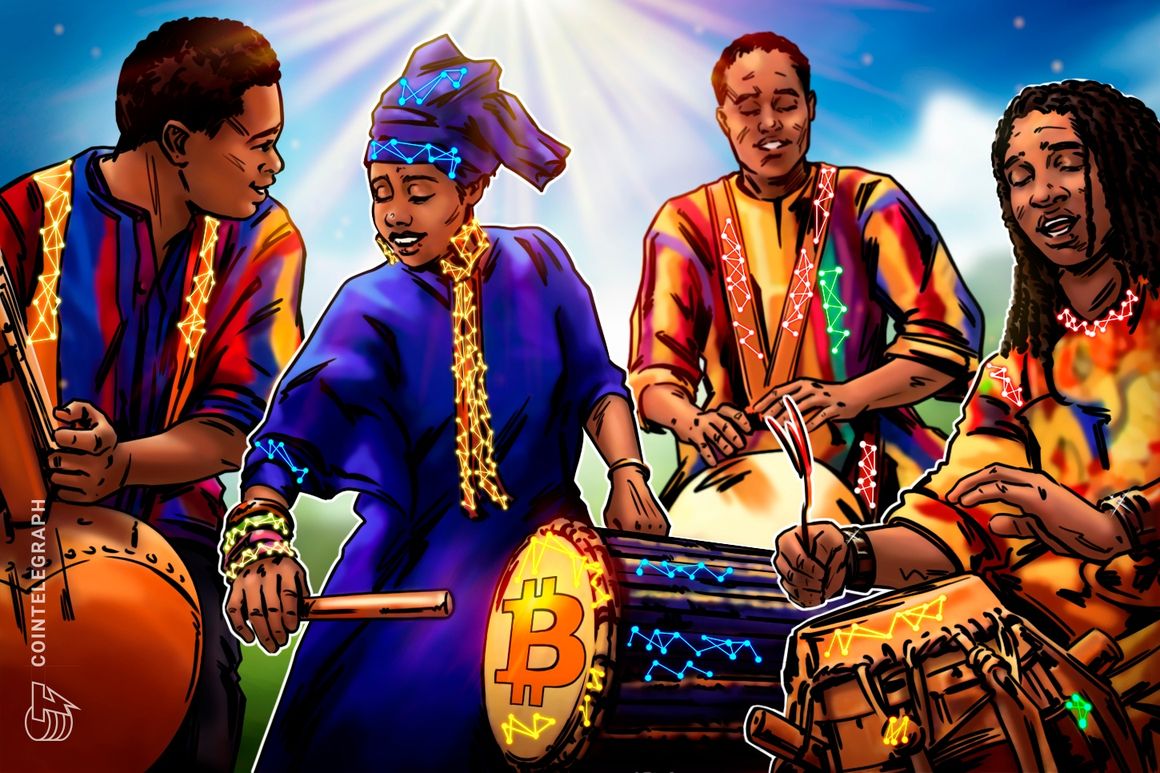Bitcoin (BTC) adoption in West Africa is dominated by Nigeria, the crypto powerhouse and the region’s economic engine. But against a backdrop of anti-
Bitcoin (BTC) adoption in West Africa is dominated by Nigeria, the crypto powerhouse and the region’s economic engine. But against a backdrop of anti-French sentiment, Bitcoin educational efforts are also bubbling away in French-speaking West Africa.
Senegal recently opened its first physical Bitcoin exchange and education center called Bitique, and the country of 17 million people will host another Bitcoin Forum in the capital, Dakar, in December, where pseudonymous local Bitcoin advocate, known as Nourou, runs an independent Bitcoin node beamed from space.
In Benin, a country of 13 million people to the west of Nigeria, the Bitcoin-only Bitcoin Mastermind conference takes place next month. The first of its kind in the country, Bitcoin Mastermind unites Bitcoin entrepreneurs and crypto enthusiasts from homegrown groups and businesses such as Izichange, GoesPay and Flash, and it offers locals a space to learn about Bitcoin.
Cointelegraph spoke with Nourou, the founder of Dakar Bitcoin Days and Bitcoin Senegal, and Loïc Kassamoto, the founder of Bitcoin Mastermind, to better understand the Bitcoin and West African crypto evolution — or revolution.
A rising tide lifts all boats
Countries in French-speaking West Africa are subjected to the West African CFA franc currency, described by the Economist as a “colonial hangover.” The Senegalese are vocal in their criticism of the currency, with some Bitcoin advocates, such as local crypto enthusiast and entrepreneur Mama Bitcoin, explaining that it’s pretty normal to complain about the currency — an implicit criticism of post-colonial French policy in the region.
Anti-French sentiment has historically existed in the region but has recently manifested in public demonstrations. Neighboring Mali recently dropped French as the nation’s official language — a law in place since the country won its independence in 1960.
In Niger, to the east of Mali and north of Nigeria, a recent military coup represented a significant setback for French President Emmanuel Macron and France’s military strategy in the region. Well-known French newspaper Le Monde commented that the coup was a “new heavy blow” for France’s military strategy in Niger’s Sahel region.
A groundswell of alternative currency initiatives is occurring across French-speaking West Africa. Growing numbers of Senegalese are turning to Bitcoin as a savings tool and a means of exchange, while in Benin, Bitcoin Mastermind’s Kassamoto told Cointelegraph the number of Beninois turning to Bitcoin is also on the up.
Magazine: Bitcoin in Senegal: Why is this African country using BTC?
In the West, much financial discussion and education tends to take place online. However, the emphasis in West African countries is on physical meetups and real-life interaction. During the COVID-19 pandemic, Nourou said that discussions about Bitcoin and money were transferred and confined to online platforms such as ClubHouse and X (formerly Twitter), but more and more physical spaces have opened up post-pandemic.

Indeed, as Kassamoto explains, one of the keys to unlocking deeper levels of financial education and demonstrating how West Africans could use a decentralized currency such as Bitcoin is through interactions in the real world:
“Bitcoin conferences, meetups and shops provide opportunities for education, outreach and direct interaction. Conferences and meetups bring the community together, share knowledge and exchange experiences.”
Norou opened Bitique, which is Dakar’s first physical Bitcoin store for buying and selling cryptocurrency. He explained that in addition to trading services, there will also be educational programs for people to learn about Bitcoin in person: “Training courses will be around 10,000 francs [$16] for two or even three hours of training.”
The in-person training goes hand in hand with a series of classroom sessions that Bitcoin Senegal conducts nationwide called the “Baol Digital Kids” program, which teaches kids how to use Bitcoin and the Lightning Network.
@SeckIdrissa, un membre actif de notre communauté, vient d’animer une session de sensibilisation sur la thématique Bitcoin/cryptomonnaies à de jeunes enfants, lors du “Baol Digital Kids” organisé par @xaralatech.
Une initiative à encourager et à soutenir pic.twitter.com/aX4u9kVFoz— ₿itcoin Sénégal (@bitcoin_sen) August 11, 2023
The kids in the video who received and sent their first satoshis via the layer-2 Lightning Network can spend the money at a growing number of merchants listed on the open-source Bitcoin tool BTCmap.org. In just 18 months, Dakar has developed from one small Bitcoin office to tens of artisans, restaurants and cafés accepting the cryptocurrency.
Nourou recently received a Blockstream Satellite kit, which, once set up, will allow him to run a Bitcoin node that will be…
cointelegraph.com

COMMENTS